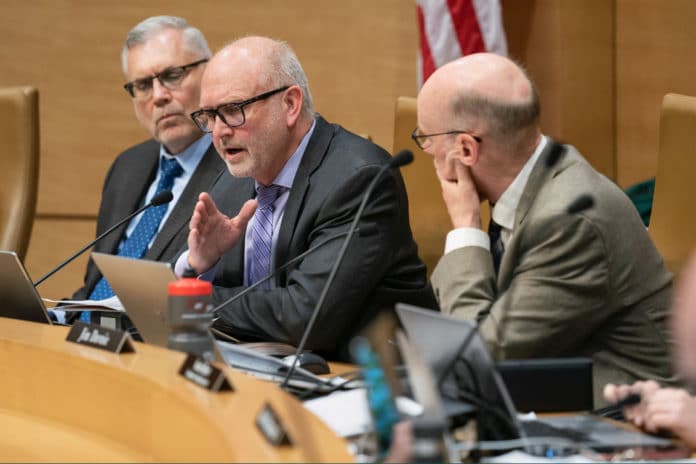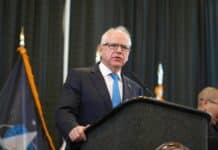
A new report issued Monday by Republicans on the Senate Education Committee claims the Minnesota Department of Education failed to follow state and federal law in its management of federal meals programs.
The report says agency leadership “either did not know how to responsibly manage [Food and Nutrition Service] programs or found the faithful execution of those duties burdensome and optional.”
It’s been nearly eight months since more than 200 FBI agents raided 14 properties linked to Feeding Our Future and still no arrests or charges have been made in connection to the case.
The nonprofit participated in the Summer Food Service Program and the Child and Adult Care Food Programs, both programs of the U.S. Department of Agriculture’s Food and Nutrition Service (FNS).
In Minnesota, the state Department of Education functions as the conduit for overseeing and administering federal reimbursements from those programs. Feeding Our Future claimed a network of more than 300 vendors, some of which were “second floor apartments” or “seemingly vacant store fronts,” Monday’s report says.
Search warrants from the raids say the nonprofit allegedly misspent millions of dollars meant to feed hungry children and used those funds to purchase “real estate, cars, and other luxury items.”
The amount of federal money passing through the nonprofit skyrocketed from $3.4 million in 2019 to $197.9 million in 2021.
So far, one person connected to Feeding Our Future has pleaded guilty but to an unrelated charge of passport fraud.
About a month after the raids, Feeding Our Future dissolved, citing “negative media reports.”
The Minnesota Senate Education Committee then conducted three public hearings on the alleged fraud and Republican members released a summary of their findings Monday.
“The summary shows three things: The Department of Education did not follow state and federal law, they lacked accountability, and now refuse to acknowledge their shortcomings,” said Sen. Roger Chamberlain, R-Lino Lakes, chair of the Education Committee. “Tens of millions of taxpayer dollars may be involved in this fraud, and the department simply cannot address the problem or recognize their mistakes.”
The report notes that stay-at-home and remote-work policies interfered with MDE’s ability to oversee the programs.
“MDE failed to meaningfully pursue programmatic fraud that it suspected. While thousands of meals and millions of dollars were being fraudulently claimed, the department limited site visits and instead relied on ‘desk audits.’ The department could have placed staff outside (in their car) of suspicious programs to monitor foot-traffic but chose not to. MDE cited COVID-risk to its staff,” the report says.
While COVID policies “created problems,” the committee uncovered “numerous additional inexplicable shortcomings” and “derelictions of duty” at MDE that “greatly magnified the scope of the loss.”
For instance, the report claims MDE could have “required bank records and financial records from suspected fraudsters and confirmed that they were pocketing FNS dollars rather than buying food.”
“MDE leadership confirmed that it had problems with key players within the FNS fraud since 2018. Yet rather than relaying these problems to the legislature and asking for increased state statutory authority, the agency has consistently sought to go its own way,” the report says.
Another key finding says MDE subjected all vendors to the same “low-level of accountability,” regardless of how much money in reimbursements they were claiming.
The Department of Education pushed back on some of the characterizations in the report in a statement to Alpha News.
“We want to be clear that MDE staff raised concerns with Feeding Our Future early on and escalated their reporting to the USDA, the OIG and the FBI. Even when MDE stopped payments to Feeding Our Future, a court informed MDE the payments must continue,” said Director of Communications Kevin Burns.
“Because of MDE’s early action, the federal government opened an investigation, which we have fully supported. MDE moved quickly and repeatedly raised the issue to federal authorities until we were able to find someone who would take the troubling spending as seriously as we were,” he added.
Chamberlain said the initial findings lead him to believe “we need a full audit of this program to determine the total scope of the problem.”
Read the findings here:
